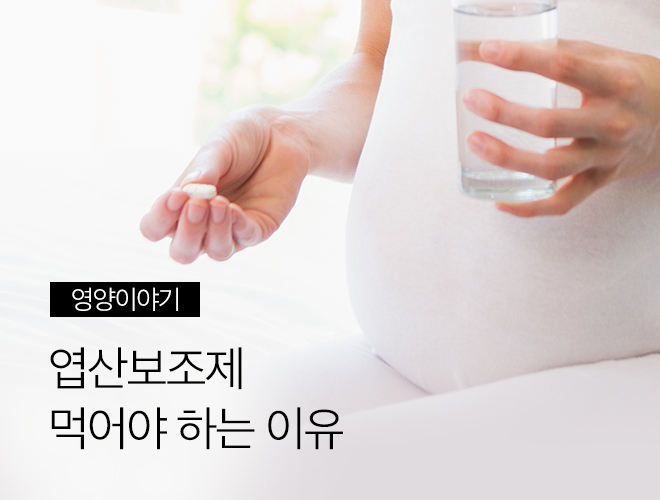
folic acid is used in women, children,
Essential for teenagers
Folic acid is an indispensable nutrient for women of childbearing age and breastfeeding mothers. This is why from the moment the fetus is fertilized to the time the baby is breastfed, folic acid is heavily involved in DNA synthesis. The same is true for growing infants, children, and adolescents.

Only 50% is absorbed by the body
Folate is a compound composed of pteridine, para-aminobenzoic acid, and glutamate. Folic acid supplements or synthetic folic acid are recommended because the body converts folic acid from foods into polyglutamate. Polyglutamate is used as a coenzyme necessary for protein activity. This is why only 50% of the folic acid consumed from food is absorbed by the body.
Therefore, most countries, including the U.S. FDA, recommend the consumption of folic acid as a synthetic nutrient. The recommended amount of folic acid for pregnant women is 620~1,000μg per day, which can be divided into foods and supplements.
Professor Han Jeong-yeol, Department of Perinatology, Cheil Medical Center, said, "10~20% of pregnant women in Korea have a gene (TT, MTHFR C677T modified gene) that interferes with folic acid absorption" and added, "It is difficult for pregnant women to maintain enough folic acid to prevent malformations through food intake alone, so it is advisable to take synthetic folic acid with a high absorption rate."
I Folic Acid Primary Feeder,

In particular, women who have given birth to a baby with neural tube defects, pregnant women with diabetes, pregnant women taking anticonvulsants, and women who have frequently smoked and drank alcohol should take folic acid (supplement) at a dose of 4~5mg per day in the early stages of pregnancy, and from the 12th week of pregnancy, they should follow the recommended amount (400~1,000μg) for pregnant women. This is because overdoses of nonsteroidal anti-inflammatory drugs such as aspirin, ibuprofen, and acetaminophen reduce the nutritional status of folic acid, and alcohol reduces the activity of folate conjugase, which is necessary for the absorption of folic acid.
If you're taking a pregnant woman's vitamin supplement, it's a good idea to make sure it contains the recommended amount of folic acid before deciding to take more.




